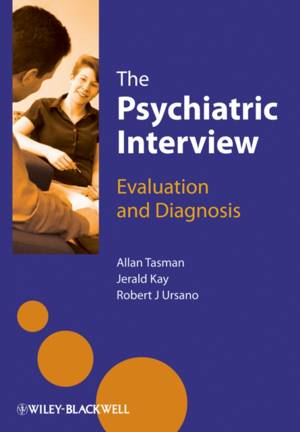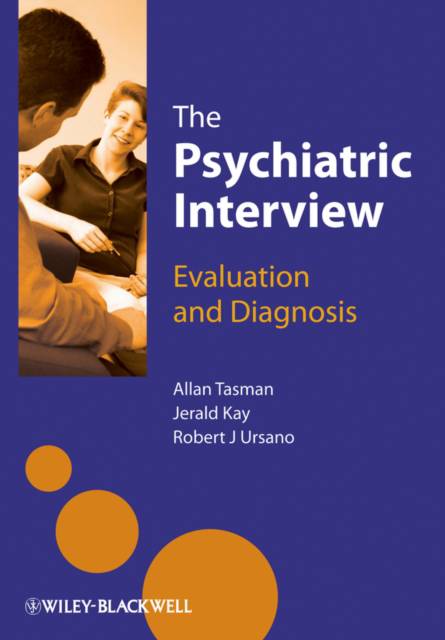
- Afhalen na 1 uur in een winkel met voorraad
- Gratis thuislevering in België
- Ruim aanbod met 7 miljoen producten
- Afhalen na 1 uur in een winkel met voorraad
- Gratis thuislevering in België
- Ruim aanbod met 7 miljoen producten
The Psychiatric Interview
Evaluation and Diagnosis
Allan Tasman, Jerald Kay, Robert UrsanoOmschrijving
While the ABPN has now supplied such standards for psychiatry, psychiatric interviewing instruction has not been standardized in the US or in other countries. Similarly, the few psychiatric interviewing books available are written in textbook form, often long and often from the subpecialty perspective (e.g. psychodynamic interviewing). Critically, no interviewing guides to date take a true biopsychosocial perspective. That is, they limit themselves to "interviewing" as an isolated technique divorced from full patient assessment, which for quality patient care must include the interface of psychological and social components with biological components. Similarly, few interviewing texts are fully integrated with DSM/ICD categorical diagnostic schemata, even though these descriptive diagnostic systems represent the very core of our clinical language--the lingua franca of the mental health professions. Without good descriptive diagnoses there cannot be adequate communication of clinical data among providers.
The proposed book will meet this need for training in biopsychosocial assessment and diagnosis.
The patient interview is at the heart of psychiatric practice. Listening and interviewing skills are the primary tools the psychiatrist uses to obtain the information needed to make an accurate diagnosis and then to plan appropriate treatment. The American Board of Psychiatry and Neurology and the Accrediting Council on Graduate Medical Education identify interviewing skills as a core competency for psychiatric residents.
The Psychiatric Interview: evaluation and diagnosis is a new and modern approach to this topic that fulfills the need for training in biopsychosocial assessment and diagnosis. It makes use of both classical and new knowledge of psychiatric diagnosis, assessment, treatment planning and doctor-patient collaboration. Written by world leaders in education, the book is based on the acclaimed Psychiatry Third Edition by Tasman, Kay et al, with new chapters to address assessment in special populations and formulation. The psychiatric interview is conceptualized as integrating the patient's experience with psychological, biological, and environmental components of the illness.
This is an excellent new text for psychiatry residents at all stages of their training. It is also useful for medical students interested in psychiatry and for practicing psychiatrists who may wish to refresh their interviewing skills.
Specificaties
Betrokkenen
- Auteur(s):
- Uitgeverij:
Inhoud
- Aantal bladzijden:
- 208
- Taal:
- Engels
Eigenschappen
- Productcode (EAN):
- 9781119976233
- Verschijningsdatum:
- 29/07/2013
- Uitvoering:
- Hardcover
- Formaat:
- Genaaid
- Afmetingen:
- 173 mm x 244 mm
- Gewicht:
- 476 g

Alleen bij Standaard Boekhandel
Beoordelingen
We publiceren alleen reviews die voldoen aan de voorwaarden voor reviews. Bekijk onze voorwaarden voor reviews.












